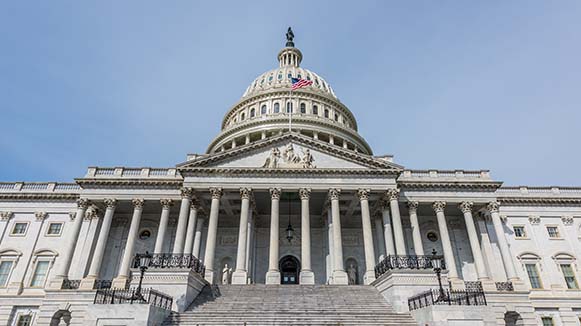Tax Reform Bill Moves Forward

On December 6, the House and the Senate voted to go to committee, setting the stage for further tax reform negotiations between the two chambers. The House and Senate are now tasked with working out their differences on issues ranging from business taxes to the repeal of the Obamacare mandate.
Below are some of the key differences in the two bills pertaining to individuals and businesses.
For Individuals:
• Individual rates and brackets
The Senate bill has seven tax brackets with rates ranging from 10% to 38.5%. The House bill has four tax brackets ranging from 12% to 39.6%.
• Individual alternative minimum tax (AMT)
The House bill repeals individual AMT. The Senate bill retains the AMT, with increases to the exemption amounts.
• Estate tax
Both bills would increase the estate and gift tax exemption, but the House would also repeal the estate tax after Dec. 31, 2024.
• Mortgage interest deduction
The Senate would retain the deduction for acquisition indebtedness interest but would suspend the deduction for home equity interest. The House would allow the deduction for acquisition indebtedness interest, but would reduce the current $1 million limitation to $500,000 ($250,000 for married individuals filing separately), and would allow the deduction only for interest on a taxpayer’s principal residence, not for home equity indebtedness.
• Medical expense deduction
The House would repeal deductions for medical expenses, while the Senate would temporarily reduce the floor from 10% to 7.5% for all taxpayers for tax years beginning after Dec. 31, 2016 and ending before Jan. 1, 2019, returning to the 10% floor after Dec. 31, 2018.
• Dependent Care credit
Both bills provide for a non-child dependent credit, which would be $500 under the Senate bill and $300 under the House bill. The House bill would also provide a “family flexibility credit.”
For Businesses:
• Effective date of corporate tax reduction
Both bills reduce the corporate tax rate to 20%. The House’s version would apply to tax years beginning after Dec. 31, 2017, while the Senate’s would go into effect for tax years beginning after Dec. 31, 2018.
• Corporate AMT
The House bill would repeal the corporate AMT. The Senate bill would retain the corporate AMT at its current 20% rate.
• Section 179 expensing
Both chambers propose an increase to the expensing cap and phase-out under Code Section 179. The Senate would increase the cap to $1 million and begin the phase-out at $2.5 million, while the House would increase the cap to $5 million and start the phase-out at $20 million.
• Pass-through provision
The Senate bill would allow a taxpayer who has qualified business income (QBI) from a partnership, S corporation, or sole proprietorship to claim a deduction equal to 23% of pass-through income. The House bill would provide a new maximum rate of 25% on the “business income” of individuals, including complex anti-abuse rules to prevent the re-characterization of wages as business income.
To stay up-to-date on the latest news regarding the progress of the Tax Cuts and Jobs Bill, one useful resource to consult is the Bloomberg News Tax Reform website.
If you have questions about how the proposed tax reforms may impact you or your business, please don’t hesitate to contact us at info@tonneson.com.
Let's Talk
If you’re interested in working with Tonneson + Co, please reach out to us. We look forward to hearing from you!
"*" indicates required fields
